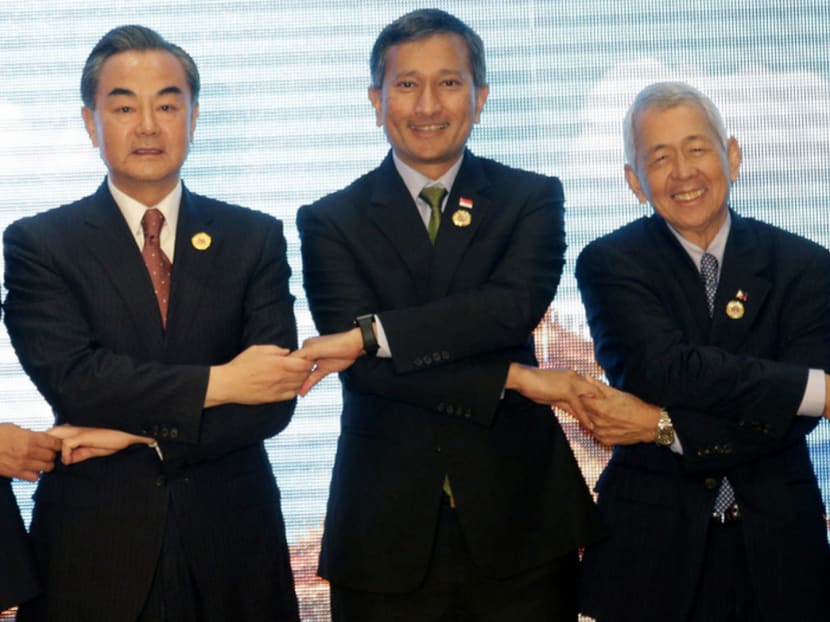S-E Asia adopted principled stand: Vivian
SINGAPORE — Minister for Foreign Affairs Dr Vivian Balakrishnan yesterday lauded the unity of the Association of South-east Asian Nations (Asean), as the grouping adopted a principled position on the South China Sea after several days of intense consultations among member states divided over how to respond to a ruling by The Hague that invalidated China’s expansive claims in the regional waterway.

(From left) Chinese Foreign Minister Wang Yi, Foreign Minister Vivian Balakrishnan and Philippine Foreign Minister Perfecto Yasay attending the Asean foreign ministers’ meeting, where The Hague’s South China Sea ruling was a contentious issue. PHOTO: AP
SINGAPORE — Minister for Foreign Affairs Dr Vivian Balakrishnan yesterday lauded the unity of the Association of South-east Asian Nations (Asean), as the grouping adopted a principled position on the South China Sea after several days of intense consultations among member states divided over how to respond to a ruling by The Hague that invalidated China’s expansive claims in the regional waterway.
Following the release of the Joint Communique of the 49th Asean Foreign Ministers’ Meeting in Vientiane, Dr Balakrishnan wrote on Facebook that he is “delighted” over how Asean demonstrated unity of purpose by issuing a principled joint communique.
“This is all the more crucial given recent developments in our region. Asean unity is essential for Asean centrality in shaping our regional strategic architecture,” he said.
In the Joint Communique, Asean’s foreign ministers called for the peaceful resolution of disputes, including “full respect for legal and diplomatic processes”, without resorting to the threat or use of force and in accordance with international law.
Dr Balakrishnan wrote that the most challenging part of the negotiations was the formulation of relevant diplomatic language on respect for legal and diplomatic processes. “It is an important statement of principle that is worth emphasising. It goes to the heart of the challenge for small states like us (Singapore),” he said.
In 2012, Asean failed to issue a joint communique for the first time in the bloc’s history due to objection by Cambodia — a key ally of China — to diplomatic language on the South China Sea. Over the weekend, there were fears of a repeat when Asean foreign ministers struggled to find common ground after Phnom Penh stuck to its demand the group make no mention in a statement to an international court ruling against Beijing’s claim in the South China Sea, said diplomats.
Singapore’s Ambassador-at-Large Bilahari Kausikan wrote on Facebook that the references to the South China Sea in the Joint Communique are weak formulations that reflect what Cambodia can go along with. “A weak formulation is better than no formulation. Asean can only work by consensus and while we have had serious disagreements in the past what we have at least shared is a consensus on always having a consensus lest the organisation break up,” he said.





